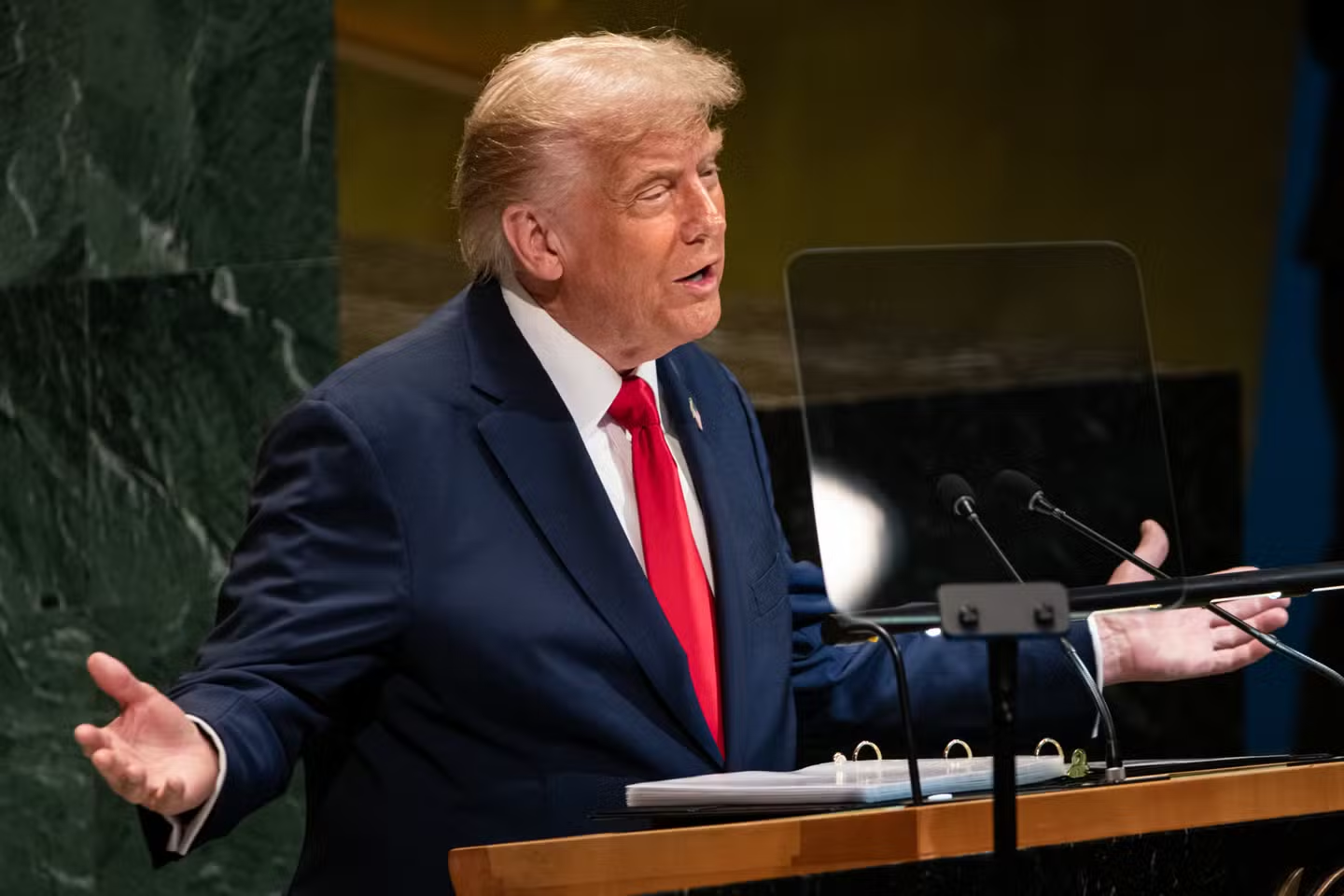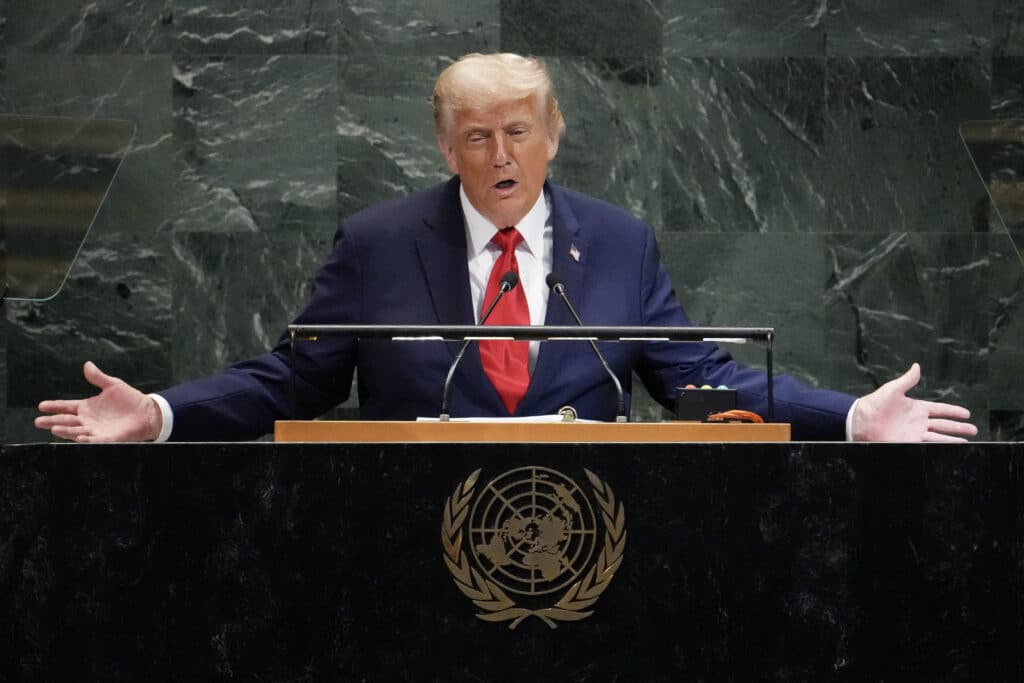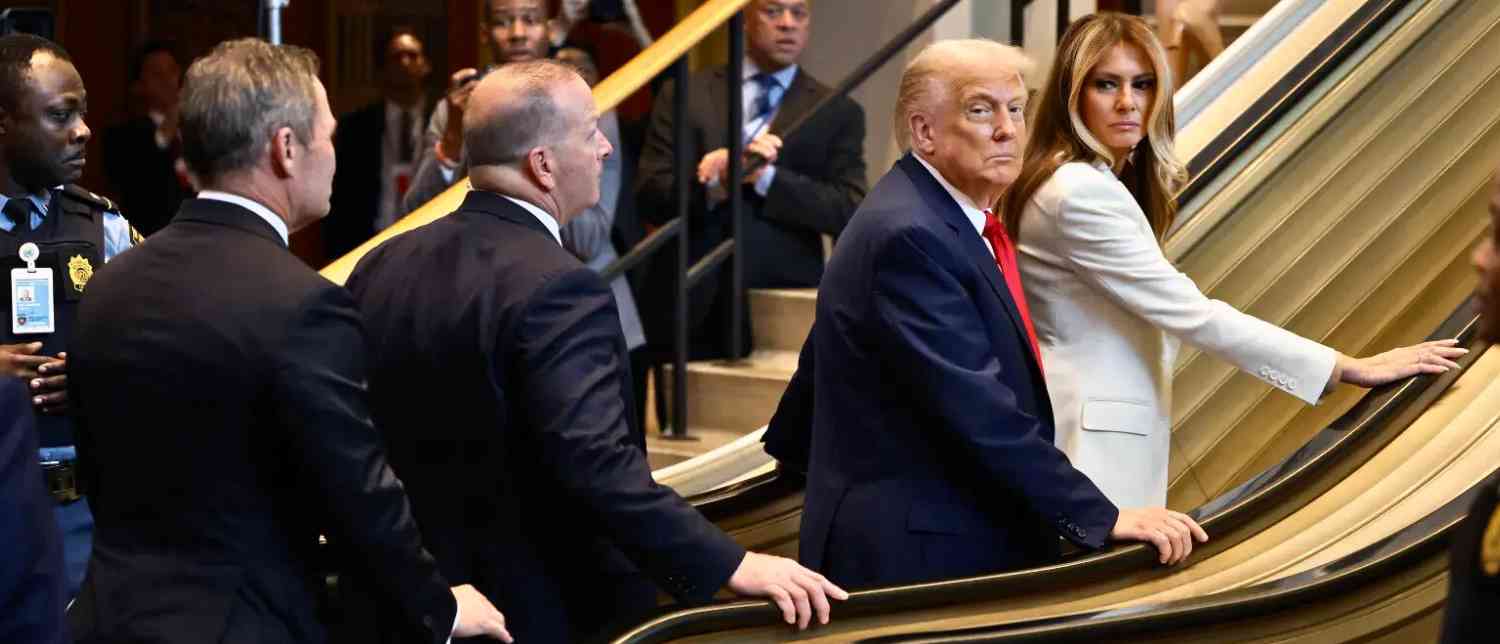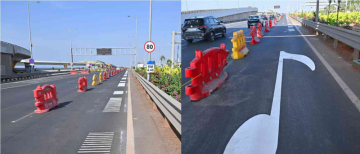U.S. President Donald Trump has triggered fresh debate at the United Nations General Assembly week in New York by demanding international arrests. He claimed the world is facing what he called a “triple sabotage” that has caused three major global shocks: the sudden rise in oil prices, disruptions in shipping routes, and a cyberattack on banking networks.

According to Trump, these incidents were not random but part of a coordinated plan. He said governments and intelligence agencies already had enough knowledge to act and insisted that world leaders must step in to stop what he described as “a global manipulation of innocent people’s lives.” His statements drew applause from his supporters outside the UN but were met with silence from UN officials and skepticism from many diplomats.
Trump linked three specific issues. First, the surge in oil prices, which he argued was “too sharp” to be explained by usual market conditions alone. He suggested that production cutbacks and unrest in the Middle East may not fully explain the shock. Second, he pointed to disruptions in global shipping lanes, especially around the Suez Canal and Red Sea, where conflicts and drone attacks have slowed the flow of goods. Many experts note these were linked to regional wars, but Trump suggested “unknown actors” were deliberately worsening the blockages. Third, he highlighted the recent cyberattack on international banking systems that disrupted digital payments. While security firms blamed hacking groups seeking ransom money, Trump said it was the “third piece of sabotage” designed to shake global confidence in trade and finance.
What made headlines was not just Trump’s claim but his demand that the UN should order “arrests and accountability.” He did not name who should be arrested but insisted that international agencies “knew the truth” about the sabotage. His remarks have not received official acknowledgment from the UN or world leaders, who mostly avoided referencing them in their own speeches. Some diplomats quietly suggested the comments were politically charged, especially as Trump’s influence grows again during the U.S. election season.
For ordinary people, however, the issues Trump spoke about are very real. Fuel prices are rising, making food and transport costlier. Shipping delays mean consumer goods are late and more expensive. Banking disruptions undermine confidence in digital transactions. Whether linked or separate, these problems show how fragile today’s interconnected economy has become.
Experts caution against drawing quick conclusions. Energy analysts argue the oil surge mostly comes from supply cuts and regional unrest rather than foul play. Trade experts blame geographic choke points and conflict for shipping issues, not shadowy saboteurs. Cybersecurity investigators point to well-known ransomware gangs behind recent banking breakdowns. Still, some admit that powerful nations or political actors could use these crises to their advantage, which makes suspicion difficult to avoid.

Trump’s message reflects two truths at once: that global systems are weak and vulnerable to shocks, and that framing every crisis as a single conspiracy risks fueling fear without offering proof. His “triple sabotage” speech is less about evidence and more about pushing governments to act quickly on problems hurting ordinary citizens.
At its core, the speech adds to the mood of uncertainty that already clouds international politics. Rising costs, growing distrust, and the sense that hidden hands are shaping events are all deeply felt by people worldwide. Even if Trump’s claim of coordinated sabotage cannot be proven, the pressure on leaders to cooperate and shield citizens from further turmoil grows stronger with each shock.
With inputs from agencies
Image Source: Multiple agencies
© Copyright 2025. All Rights Reserved. Powered by Vygr Media.

























